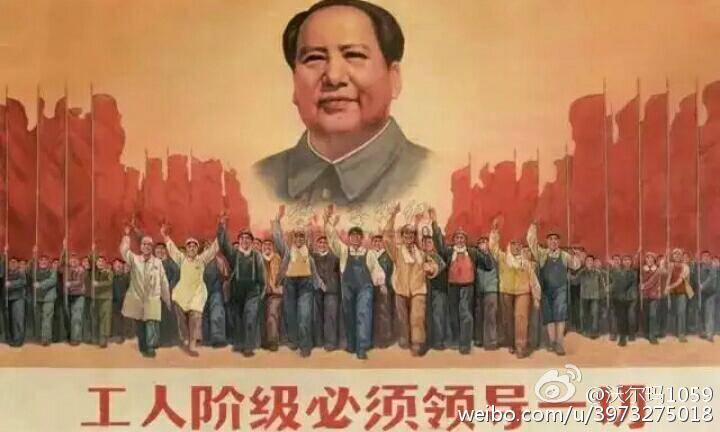Wal-Mart is the latest frontier in China’s nascent labor rights movement.
When Zhang Jun, a 44-year old electrician at Wal-Mart (China) Investment Co., Ltd. in Shandong, east of Beijing, shared his association’s Weibo blog, featuring a Mao-era propaganda poster, he was trying to make a point.
In it, Mao beams over a group of mobilized workers. A caption reads: “The working class must lead everything.” Zhang is not a fan of Mao, or his trade unions, but he is trying to revive a Maoist dictum in a cat-and-mouse game with both China’s only legal trade union and his capitalist bosses in Bentonville, Arkansas.

Zhang’s loosely defined movement — the “Wal-Mart China Staff Association” — is neither huge nor high profile, and it doesn’t have a national political agenda. But the activists involved are no longer just focused on specific workplace grievances. Instead, they are fighting for workers’ rights to organize a real union with teeth: namely, collective bargaining power.
And while this transition is standard in the history of labor movements around the world, the fight of activists like Zhang in China is unique. They are trying to re-code the only union that’s allowed to exist in China, the so-called All-China Federation of Trade Unions (ACFTU). As a socialist institution, it was a conduit for the Communist Party to its large working class, as opposed to a trade union with collective bargaining power that represents workers’ interests. As a result, the ACFTU has mostly stood on the sidelines as protests and collective strikes have intensified and increased in frequency.
Prompted by signs that Beijing’s central leadership is urging the 200-million member ACFTU to reform, Zhang and a small cadre of like-minded organizers are applying pressure on the ACFTU from below — demanding democratic elections of the grassroots layers of the ACFTU at their respective Wal-Mart stores, which they claim have been illegally controlled by Wal-Mart’s management since unionization in 2006.
Wal-Mart is the latest frontier in a series of incidents where pioneers like Zhang Jun, who are experienced in activism and educate other workers on their labor rights, are pushing the envelope to apply pressure on the ACFTU to reform from below.
“In five to ten years, (Chinese) workers will be able to reclaim the union through collective bargaining, and that [would be] the biggest national union on earth with bargaining power,” says Han Dongfang, founder and executive director at China Labor Bulletin, a non-governmental organization in Hong Kong.
http://thediplomat.com/2015/11/wal-mart-uprising-the-battle-for-labor-rights-in-china/